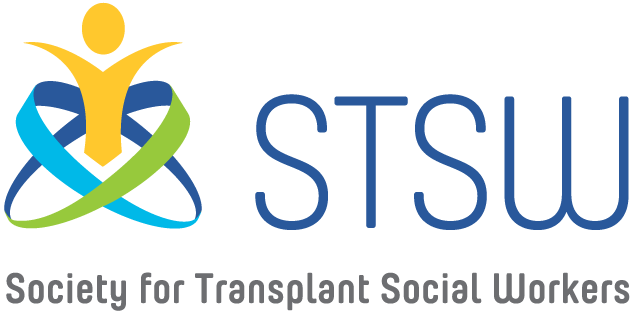- Home
- Resources / Research
- Multicultural Issues
Multicultural Issues and Transplantation
As Transplant Social Workers we are consistently faced with the challenge of evaluating and providing recommendations for candidates from different cultures and of different ethnicities. Enhancing our knowledge and improving our clinical skills are essential to being effective.
The purpose of the Multicultural Issues Committee is to address cultural diversity issues related to STSW professionals and clients served. Two essential functions of the Committee to support the above purpose include:
- Providing information to the STSW membership as it relates to current cultural issues in transplantation
- Promoting greater understanding and sensitivity in regards to race, ethnicity, gender, sexual orientation, religion, socio-economic status and mental/physical abilities in transplantation.
The Multicultural Issues Committee endeavors to provide information on this site that will be useful for the inquiring professional.
Articles
Access and Outcomes Among Minority Transplant Patients, 1999-2008, with a Focus on Determinants of Kidney Graft Survival
P.-Y. Fan, V.B. Ashby, D.S. Fuller, L.E. Boulware, A. Kao, S.P. Norman, H. B. Randall, C. Young, J.D. Kalbfleisch and A.B. Leichtman, American Journal of Transplantation, 2010; 10 (Part2): 1090-1107, Doi: 10.1111/j.1600-6143.2009.03009.x
This article review differences in kidney transplant outcomes between racial/ethnic groups. Age and duration of pre-transplant dialysis exposure was the most important determinant when examining center-related vs patient-related variables.
Living donor transplant education for African American Patients with end-stage renal disease, Kimberly R. Jacob Arriola, PhD, MPH, C. Lamonte Powell, PhD, MPH, Nancy J. Thompson, PhD, MPH, Jennie P. Perryman, RN, PhD, Mohua Basu, MPH/ NATCO, the Organization for Transplant Professionals, Progress in Transplantation, Vol 24, No.4, December 2014, page(s): 362-370.
This article addresses the effectiveness of an educational intervention called Living ACTS (About Choices in Transplantation and Sharing) which is designed to encourage African American patients with end-stage renal disease to explore LDKT as a treatment option.
Organ donation, transplantation and religion, Michael Oliver Alexander Woywodt Aimun Ahmed Imran Saif
Nephrology Dialysis Transplantation, Volume 26, Issue 2, 1 February 2011, Pages 437–444, https://doi.org/10.1093/ndt/gfq628
The usefulness of obtaining an overview regarding how the different religions view transplantation and organ donation is shared in this article. The article also provides practical points for transplant health care professionals who may be confronted with these issues.
Hispanic/Latino Disparities in Living Donor Kidney Transplantation: Role of a Culturally Competent Transplant Program, Elisa J. Gordon, PhD, MPH, Jungwha Lee, PhD, MPH, Raymond Kang, MA, Daniela P. Ladner, MD, MPH, Anton I. Skaro, MD, PhD, Jane L. Holl, MD, MPH, Dustin D. French, PhD, Michael M. Abecassis, MD, MBA, and Juan Carlos Caicedo, MD, Transplantation Direct, Volume 1, Issue 8, September 2015, p e29 doi: 10.1097/TXD.0000000000000540
This article describes how the development and implementation of a culturally and linguistically compatible transplant program can reduce Hispanics’ disparities in Living Donor Kidney Transplant rates. The culturally competent interventions in this study resulted in an increase of Hispanic Living Donor Kidney Transplantation.
Attitudes and beliefs about deceased organ donation in the Arabic-speaking community in Australia: a focus group study, Angelique F Ralph, Ali Alyami, Richard D M Allen, Kirsten Howard, Jonathan C Craig, Steve J Chadban, Michelle Irving, Allison Tong, BJM Volume 6, Issue 1, 2016; 6:e010138. doi:10.1136/bmjopen-2015-010138
Arabic-speaking participants were recruited to participate in 6 focus groups to describe their beliefs and attitudes regarding organ donation in the Arabic-speaking community. Six themes were identified that had an impact on their beliefs about organ donation.
The influence of information and religion on organ donation, as seen by school teachers in Bosnia and Herzegovina, Sahmir Sadic, Jasna Sadic, Rasim Krupic, Nabi Fatahi, and Ferid Krupic, Mater Sociomed. 2016 Oct; 28(5): 373-377
This study examined the influence of religion on attitudes towards organ donation among staff at schools in Tuzla. Subject responses were obtained regarding their support for the idea of organ transplantation (living and deceased) and whether they were prepared to donate an organ of a deceased family member).
Transplant Center Provision of Education and Culturally and Linguistically Competent Care: A National Study, E.J. Gordon, J. C. Caicedo, D. P. Ladner, E. Reddy and M. M. Abecassis, American Journal of Transplantation 2010; 10: 2701–2707
A U.S. survey of Kidney Transplant Center Administrators. Is the educational format used for patient informed decisions culturally and linguistically appropriate to enable competent decision-making?
